#just visually breathtaking and emotionally devastating
Explore tagged Tumblr posts
Text
Holy shit. I knew they said Monstrosity was supposed to be more mature, but I was not--I never could have expected they would've done something like this:

Kai willingly walking into water, something he had a deep fear of, as an act of suicide

Ignoring those trying to save him
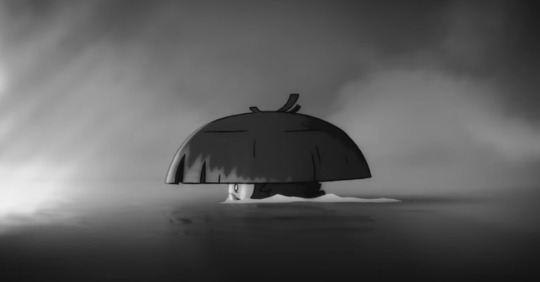
He's blocking them out. He doesn't even care.

And then this...this is just haunting.
#holy fuck ninjago#i was prepared for it to go dark but this is#wow#just visually breathtaking and emotionally devastating#ninjago#kai ninjago#ninjago monstrosity#kai smith#monstrosity kai#fire mech#daidan
972 notes
·
View notes
Text
House of the Dragon Season 2: A Fiery Continuation of Targaryen Saga
As winter recedes, the flames of excitement are reigniting for fans of the epic fantasy genre. The highly anticipated second season of "House of the Dragon" is set to grace our screens, promising a continuation of the Targaryen saga that captivated audiences worldwide. Building on the success of its inaugural season, the series delves deeper into the rich tapestry of Westeros, exploring the complexities of power, betrayal, and dragonfire.
The Dragon's Legacy:
"House of the Dragon" unfolds against the backdrop of Westeros, centuries before the events of "Game of Thrones." The series chronicles the tumultuous history of House Targaryen, a family marked by its connection to dragons and its unrelenting pursuit of the Iron Throne. Season 1 laid the foundation, introducing viewers to the enigmatic characters and political intrigues that would shape the fate of the Seven Kingdoms.
Season 2 is poised to delve even further into the dragon's legacy, unveiling untold stories, and illuminating the intricate web of relationships that define this iconic house. With a sprawling narrative and a vast ensemble cast, the show promises to deliver a feast for fans hungry for more Westerosi lore.
The Dance of Dragons:
A central theme of House of the Dragon Season 2 is the legendary Targaryen civil war known as the Dance of Dragons. This historical conflict between rival factions of House Targaryen tore through the realm, pitting dragon against dragon and kin against kin. The aftermath of this devastating conflict had lasting repercussions for the Targaryen dynasty and the realm at large.
As the second season unfolds, viewers will witness the fiery spectacle of dragons battling in the skies and the political machinations that led to the war. The Dance of Dragons promises to be a focal point, offering a visceral and emotionally charged narrative that explores the consequences of power unchecked and the price of familial loyalty.
New Characters and Intrigues:
To enrich the narrative tapestry, "House of the Dragon" Season 2 introduces a host of new characters, each bringing their own ambitions, alliances, and conflicts. From charismatic leaders to cunning schemers, the ensemble cast expands, promising viewers a diverse array of personalities vying for power and survival.
As the dynamics shift, alliances form and crumble, mirroring the complex nature of Westerosi politics. The addition of fresh faces injects new energy into the series, keeping audiences on the edge of their seats as they navigate the treacherous waters of power and deception.
Production and Visual Spectacle:
Just as dragons breathe fire, the production of "House of the Dragon" Season 2 promises to set screens ablaze. Building on the visual prowess established in the first season, the second installment boasts high production values, intricate set designs, and awe-inspiring special effects. From the breathtaking landscapes of Westeros to the majestic flight of dragons, the series continues to push the boundaries of fantasy television.
The creative team behind the show, including George R.R. Martin, ensures a faithful adaptation of the source material, while also incorporating elements that surprise even the most dedicated book readers. As the story unfolds, viewers can expect a visual spectacle that transports them to a world where dragons rule the skies and political intrigue shapes the destinies of nations.
1 note
·
View note
Text
LGBTQ Manga Review – If I Could Reach You Vol. 4 & 5
If I Could Reach You remains an incredibly emotional and powerful story
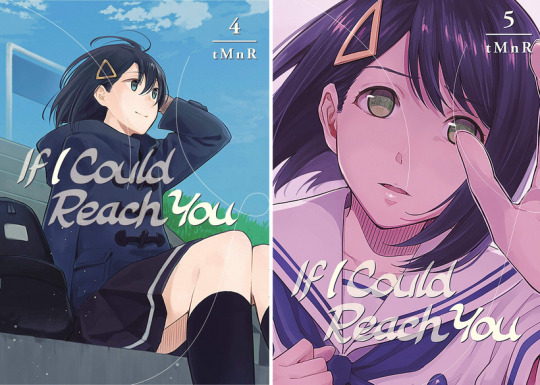
I vaguely remember once staying home from school as a child for a somewhat extended period with an illness, and upon my recovery, I was loath to return. However, my father said that the longer I wait, the harder and more awkward it will be to return. It is with that spirit that I drag myself back towards review for the first time in over a month after the ever-grueling modern reality of isolation, paranoia, and working remotely sapped my strength and excess energy for the ninth time. However, if I have to force myself to write a review, groaning and whining all the way, I may as well make it something good, and fortunately, that part was easy to find. Indeed, the end of 2020 and opening of 2021 is stuffed with more Yuri than my lesbian vision board. I chose to go back to the most recent entry in one of my favorite series, If I Could Reach You. Perhaps this shattering and emotionally draining series is not the best medicine to cure the quarantine-blues. Still, it is nice to have a reminder that there are people in the world, or at least in manga, that are as miserable as us.

The fourth volume of If I Could Reach You kicks off when Uta’s mother reenters her life after apparently staying overseas for several years. She intends to start her relationship with Uta over. She insists that the high schooler come live with her, throwing the delicate balance she, her brother Reiichi, and sister-in-law Kaoru have. On top of this, Uta is struggling after her confession to Kaoru failed to reach the older girl, who seemingly interpreted it as a statement of familial friendliness.
During much of this volume, characters avoid the seemingly inevitable, which builds a sense of foreboding or even dread for what may come. Uta devotes more time to her friends, leading to a narrative focus on Chloe and Miyabi’s relationship and the Konatsu telling her story of a relationship with a young teacher. These side stories are compelling enough, but they at least feel like a joined part of the narrative, rather than a distraction as they occasionally drifted towards in previous volumes. Uta learns and grows from seeing her friends’ struggles and appears affected by them, incorporating their experiences into her journey.

Uta’s experiences are mirrored perfectly by Kaoru, who is apparently more suspicious of Uta’s feelings than she let the younger girl believe. Ultimately, this leads to their big confrontation at the start of volume five and, while I will not spoil anything, the results of it are stunning. The author is uniquely able to convey the complex emotions of the characters. Utas feelings after the encounter are ones of guilt, joy, and overwhelming relief. The story is rapidly barreling towards its conclusion as she prepares to leave behind her brother, the woman she loves, and, she hopes, her feelings.

If I Could Reach You’s story is as devastating and shocking as ever. The characters are complicated, and their motivations and feelings are not always clear, but not for lack of clues. Upon repeat reading and analysis of the images, their true feelings become more apparent, showing more detail the more time you spend with it. It is brilliantly paced and rewarding to invested readers who spent the time with the last few volumes and stayed invested and critical during the build-up.
However, the real reason I adore If I Could Reach You is the artwork. Few of the illustrations appear breathtaking at first, or epic in their achievement, but the more so their subtleties. Every shot’s framing, the arrangement of panels, and the characters’ expressive faces and bodies all serve to prop up the story and communicate it and its intricacies perfectly. Indeed, tMnR is the master of visual storytelling and has enough confidence in their art to relieve dialogue and let the art do the work’s brunt. On more than one occasion, back before the series concluded serialization, I would browse the latest chapters in Comic Yuri Hime and just observe the art, without looking up any of the Japanese, and was consistently impressed.
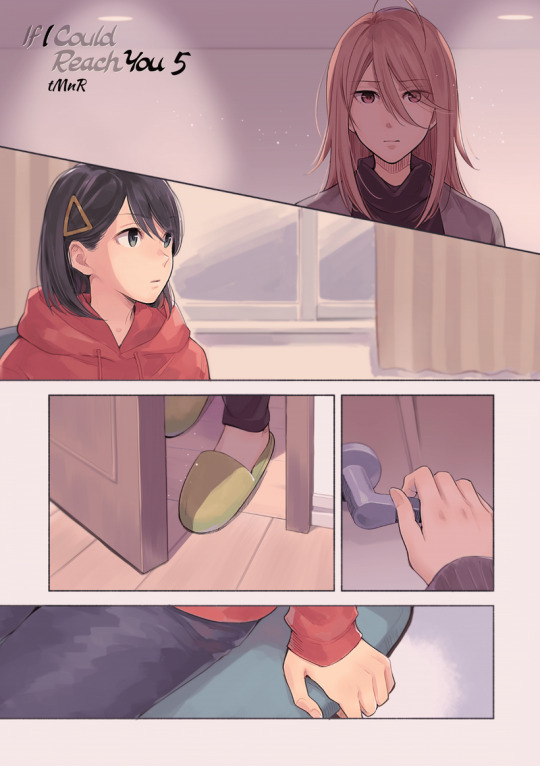
A lot of the time, I feel art, especially dramas, exists only to serve as secondary visuals for the dialogue and stories, a sales banner clamoring for attention and then serving only as talking heads for text which could easily be rewritten in prose or else rearranged into a large group text chat. If I Could Reach You is one of a few works that only really works in visual mediums. Much of this I have said before, but I want just to highlight how astounding and tight tMnR’s focus and artwork is.
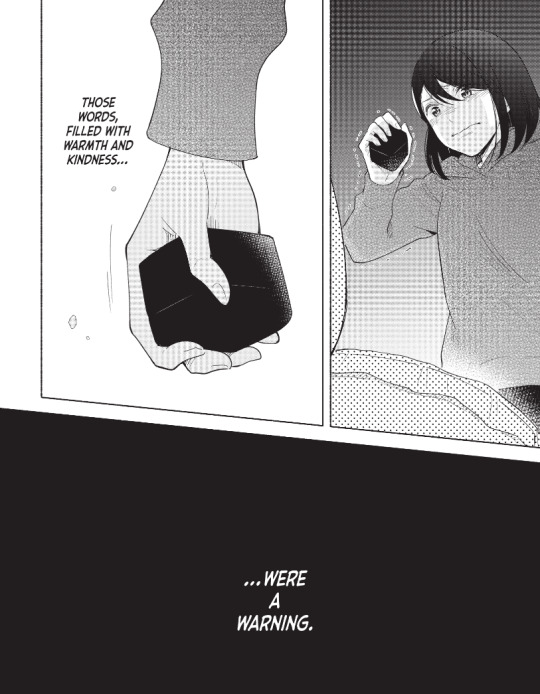
If I Could Reach You remains an incredibly emotional and powerful story. The tension continues to rise in volumes 4 and 5, as both our heroines press forward and finally reveal the truth and hurt. The series is subtle yet exceptionally direct, pulling no punches in this complex and devastating whirlwind. It is all accompanied by precise and wonderfully crafted artwork that instills a profound relationship and understanding of its subjects unique to other works. It is one of a select few series that holds my attention and investment, and for an excellent reason.
Ratings: Story – 8 Characters – 7 Art – 10 LGBTQ – 5 Sexual Content – 3 Final – 8
Check out If I Could Reach You volume 4 and 5 digitally and in paperback today: https://amzn.to/3rAHAHi
Reading official releases supports creators and publishers. YuriMother makes a small commission from sales to help fund future content.
Review copies provided by Kodansha Comics
#yuri#reviews#manga#lgbt#lgbtq#lgbtq+#queer#gay#lesbians#lesbian#girls love#gl#if i could reach you#wlw#anime
162 notes
·
View notes
Text
Anime i’ve Watched
That begin with a K (Part 4)!
Yep this is how i’m going to bring over all the anime and manga i’ve watched and posted about on the old blog. It’s not so detailed but it will have to do. Anything new I watch or read from this point on will have their own posts.
Kono Oto Tomare!:
Genres: drama, music, romance, school, shounen

Synopsis: Gen Kudou, a koto maker, believes that his delinquent grandson Chika would never understand the profoundness of the traditional musical instrument. In an attempt to make up for his naivety and understand the words of his late grandfather, Chika tries to join the Tokise High School Koto Club. Even though the club is in dire need of members, new club president Takezou Kurata is unwilling to easily accept Chika's application due to his bad reputation. Nonetheless, after seeing Chika's seriousness and enthusiasm, Takezou allows the problem child to join, along with koto prodigy Satowa Houzuki and three of Chika's energetic friends. Kono Oto Tomare! follows the merry band of musicians as they aspire to play at the national competition. [Written by MAL Rewrite]
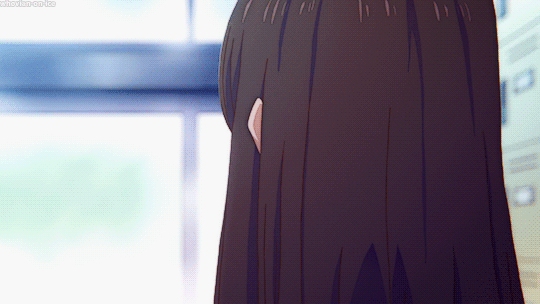
My Rating: 9/10
Finished airing in 2019 with a total of 13 episodes.
My Thoughts: A fantastic anime. The musical performances are breathtaking and the slice of life aspect is just perfect. Great characters and interactions. Love it. The artwork was nice though not my usual preferred style.
Kono Oto Tomare! 2nd Season:
Genres: drama, music, romance, school, shounen

Synopsis: The Tokise High School Koto Club has courageously pushed through their fractured and unsynchronized performance at the Kanto Region Traditional Japanese Music Festival. Clubmembers Chika Kudou, Satowa Houzuki, Takezou Kurata, Hiro Kurusu, Kouta Mizuhara, Saneyasu Adachi, and Michitaka Sakai are devastated to learn the negative results of their performance, leaving them crushed. Nonetheless, the group recognizes their potential and enthusiastically agree to collectively sharpen their skills, improve their flaws, and develop higher caliber playing to succeed in the upcoming national qualifiers in winter.
With the help of their now willing club advisor Suzuka Takinami, the group's goal gradually becomes achievable as they begin to grasp the foundations of good music and refine their koto-playing abilities, with the suggestion of performing more often to gain what they lack most—experience.
However, as their journey to nationals is underway, the koto club members face challenges that obstruct their focus and progress. Not only does the threat of other powerhouse schools and musicians remain, but the high school issues of budding romance and soon-to-be-graduating seniors also begin to push the limits of the determined group of teenagers and the future of the koto club.
[Written by MAL Rewrite]
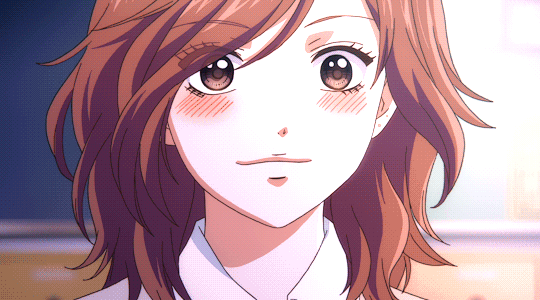
My Rating: 9/10
Finished airing in 2019 with a total of 13 episodes.
My Thoughts: A great sequel or continuation. Dives a bit deeper into the characters and the club while also introducing a very interesting new and important character. Amps up the romance a tiny bit as well which is nice!
Kotonoha no Niwa (The Garden of Words):
Genres: film, slice of life, psychological, drama, romance

Synopsis: On a rainy morning in Tokyo, Takao Akizuki, an aspiring shoemaker, decides to skip class to sketch designs in a beautiful garden. This is where he meets Yukari Yukino, a beautiful yet mysterious woman, for the very first time. Offering to make her new shoes, Takao continues to meet with Yukari throughout the rainy season, and without even realizing it, the two are able to alleviate the worries hidden in their hearts just by being with each other. However, their personal struggles have not disappeared completely, and as the end of the rainy season approaches, their relationship will be put to the test. [Written by MAL Rewrite]

My Rating: 10/10
A film released in 2013.
My Thoughts: Visually stunning. A fact that is immediately apparent as soon as this film begins. Also emotionally moving, if you’re anything like me you’ll be a puddle of emotions by the end.
Kuma Miko:
Genres: slice of life, comedy, seinen
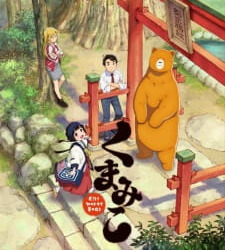
Synopsis: What does a bear know about life in the big city? For Machi Amayadori's sake, hopefully a lot! The young shrine maiden has spent her whole life in the rural mountains with Natsu, her talking guardian bear. Now, at fourteen, she wants to take a chance and attend high school in the big city. Can Natsu really prepare her for city life? Or will his wacky trials be too much for even Machi to bear? (Source: FUNimation)
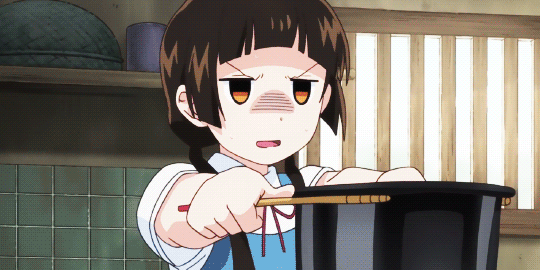
My Rating: 4/10
Finished airing in 2016 with a total of 12 episodes.
My Though: Ugh.... just no. Trust me don’t bother.
Kuragehime (Princess Jellyfish):
Genres: slice of life, comedy, josei

Ever since her late mother took her to an aquarium when she was young, Tsukimi Kurashita has been obsessed with jellyfish, comparing their flowing tentacles to a princess's white dress. Now living with five other unemployed otaku women, 19-year-old Tsukimi spends her days as a social outcast dreaming of becoming an illustrator. However, her life changes forever when one day, a beautiful woman unexpectedly helps her save a jellyfish in a local pet store. From then on, the stranger—confident, fashionable, and the complete opposite of Tsukimi and her roommates—begins to regularly visit the girls' building. This trendy hipster, though appearing shallow at first, harbors some secrets of her own, starting with the fact that "she" isn't really a girl at all, but a wealthy male college student named Kuranosuke Koibuchi! [Written by MAL Rewrite]
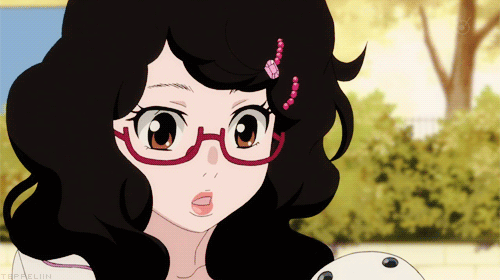
My Rating: 8.5/10
Finished airing in 2010 with a total of 11 episodes.
My Thoughts: Give me more Josei content!!! Seriously though I love Princess Jellyfish and all the characters but unfortunately the anime isn’t the whole story and is unlikely to ever get a full season. I highly suggest reading the manga (which is completed) and watching this as a little something extra!
#anime#kono oto tomare!#kono oto tomare! 2nd season#kotonoha no niwa#the garden of words#films#kuma miko#kuragehime#princess jellyfish
73 notes
·
View notes
Text
Thoughts on The Last Jedi (spoilers under the “keep reading” line)
I originally wanted to just make a small list of things I liked and did not like about this movie, but I’ve come to realize my feelings are a bit more complicated than I expected. I don’t hate it, nor do I think it is the worst film in the series; however, I am baffled by the arguments that it’s somehow a clever deconstruction of the Hollywood blockbuster formula or finding new ground for SW. If anything, I found it an aimless, poorly paced retread of familiar tropes and ideas with only a few interesting elements to save it from being mediocre.
I’ll start with what I considered all-around good: the acting is excellent across the board. Every actor is game, doing their best and even elevating the material at times. It was a bittersweet experience to see the late Carrie Fisher here and even with her limited screen-time, she brings a great deal of dignity and spunk to the princess/general we know and love. Mark Hamill gives one of his best performances as Luke, communicating worlds of pain and regret with his eyes alone. While he isn’t one of the greatest actors of all time outside of the voice-acting world, he is incredibly effective here. Thankfully, Oscar Isaac gets more to do this time around. And everyone else is on the whole fine, even great at times. I was also impressed with the visuals and editing, which are often breathtaking, especially on the big screen. The casino planet was pretty rad too; I can so see the rich and powerful hanging out in such a place. And—everything else is extremely mixed for me.
This movie reminds me of Attack of the Clones in that it is all over the place tonally. I am all for genre hybrids or movies that can touch on several emotional shades at once, but it is a hard thing to do and this movie isn’t up to that. One minute it’s dead serious and in the grand epic mode, then the next we’re dealing with broad comedy more appropriate for a Marvel film. That juxtaposition felt awkward in the prequels and it feels awkward here.
For all the critics’ talk of this movie breaking new ground, I remained frustrated by the same old rehash of lines and themes from the OT. There’s still the good versus evil, the empire chasing rebels Everything is also rushed beyond belief, which seems like a weird conclusion to draw about a 2 ½ hour movie. Rose is barely developed, despite her potential to be a great character (her romantic feelings for Finn are woefully half-baked; I would say the only thing that even makes you believe she was into him was her slight bout of hero worship in her initial scene with him). Finn doesn’t evolve beyond what he was in TFA. Rey doesn’t change, despite the challenges posed to her ideas about the Force by both Luke and Kylo. Her training with Luke, if you can even call it that, is basically nothing, even less than the crash course Luke got from Yoda in Empire. We’re led to believe Luke has some great development, but that’s yet another thing that has little payoff.
Overall, I am torn on Luke Skywalker’s characterization. On one hand, I believe he would become disillusioned with the Jedi after he lost his nephew to the Dark Side—however, do I believe he would stay on that island after hearing one of his oldest friends was MURDERED by the former student he feels he failed? I’m sorry, I don’t. I know people change as they get older and I know enough cranky old people to see how life can beat you down and make you emotionally exhausted. But the thing about Luke is that he’s stubborn and contrarian; when Yoda and Obi-wan told him to give up on Vader (a Sith who committed WAY worse sins on a much grander scale than Kylo-Ren ever did), he went with his hunch that his father could be redeemed, even though he had only his gut instinct as evidence to go on. I have a hard time believing he wouldn’t try to right the wrong he did to his nephew. Him retreating from the conflict feels as false as the strong-minded and very active Padme losing the will to live at the end of Revenge of the Sith. His death sits even less well with me, since I feel the character had more to do and should have been more active in trying to aid the Resistance and train Rey.
Kylo-Ren is more interesting this time around, more conflicted and morally ambiguous. His temptation to turn to the Light mixed with his savagery is great. His interactions with Rey, which are simultaneously uneasy and charged with sexual tension, are fascinating. And yet, like so much else in this movie, it all goes nowhere. I still have no clue why Kylo is drawn to the Dark Side. With Anakin, it was an outgrowth of growing up as a powerless slave and losing those he loved to war and violence, which makes it clear why the idea of a fascist dictatorship would appeal to him. For Palpatine, it was because he was a greedy psychopath. But Kylo? I have no idea what he feels he’s getting on an emotional level from the Dark Side. What do Snoke and the Dark Side promise him that makes turning evil so tempting? He didn’t hate his parents, however lacking he felt they were. Luke was hard on him, though we learn that’s because the kid was already turning to the Dark Side. So where does it all originate? I have no clue and I think, yeah, it’s not unreasonable for me to understand what motivates one of the major villains of this new trilogy. Because otherwise, it is hard for me to be fully invested in him as a character.
In fact, the whole First Order are just disappointing villains, a second-rate empire. I have no idea how they were able to come to power, not only because it’s never brought up in either this film or TFA, but because these guys are about as competent as the Three Stooges. Hux is a punchline subjected to “yo mamma” jokes and proving himself utterly useless time and again. Phasma is pretty much like Boba Fett: she looks cool and fights well, only to get killed off without ceremony. Snoke is a dumber Voldemort, built up as this clever, evil genius only to be proven even worse at underestimating his employees and enemies than Palpatine! I was never a fan of the character to begin with, finding him bland, but here, he just shows up, cackles evilly, then dies in a rather comical manner. How did he come to power? It has to be more than just his powers; even Palpatine was a politician and he preyed on the Clone Wars’ devastation to convince people to make him Emperor. But Snoke? Nothing.
The pacing was also a huge issue for me. Now, I normally dig slow pacing—but this was excruciating, probably because I felt like the story was going nowhere much of the time. Finn and Rose are wasted, given nothing but a McGuffin side-quest. Every time we cut to them, I just lost so much interest. As for the political “subtext” (if you can call an explicitly socio-political monologue subtext) in the Finn and Rose sub-story, I’ll just say I agree with critic Tim Brayton on the matter:
And this plotline feeds right into the absolutely unforgivably terrible subplot, which is the adventures of Finn (John Boyega) the cowardly ex-storm trooper, and Rose (Kelly Marie Tran), the class-conscious engineer, who go on a fetch quest that is every bit as pointless as the whole matter of the military nonsense, only even worse, because it hinges on terrible comedy, bad CGI, and a spectacularly horrible moment when Johnson stops the film in its tracks to provide a ruthlessly on-the-nose lesson about economic inequality and the military-industrial complex, and I hate this all the more for the film's message in this moment being one I passionately agree with - if something has to be artless and awful, better that it not take down a cause I hold dear as part of the collateral damage. And it really is awful; the worst thing in the movie, despite the best intentions of various film critics to defend it (I am sorry, but "has politics I like" is not all it takes to make a movie good. If all you want is for a film to spit your ideology back at you, and it doesn't matter if this is done with any grace or artistry at all, congratulations: you are a Stalinist. I like politics in movies - I love politics in movies - but not every political filmmaker is Sergei Eisenstein, and they should damn well not be treated like they are).
I have no problem with this political/social angle being there; hell, I love the idea of the Rose character and the theme of inspiring the downtrodden (the idea of legends and the power of storytelling really appealed to me, and I loved that last scene with the kids re-enacting the OT story in the stables), but like so much else they feel underwritten and clumsily implemented. It doesn’t help that this side plot feels oddly disconnected from everything else and is far less interesting than Poe or Rey’s stories. And once again, I feel like it accomplished nothing whatsoever, much like the majority of this story.
Now, people might argue the main theme of this movie is about failure and how we must learn from it, thus making this side-plot appropriate. The thing is, I don’t think anyone besides Poe learned much of anything from their mistakes or failures, let alone Finn and Rose. According to writer/director Rian Johnson, one of the big inspirations for this film was the 1964 classic Three Outlaw Samurai, a movie in which the titular heroes become disillusioned with the samurai code and the corruption of the culture in which they live. Concepts such as honor and loyalty become muddied. TLJ is clearly trying to weave a similar theme, with Kylo, Luke, and Ghost!Yoda calling for a new age in which the Jedi and Sith are no more. The problem? Kylo still embraces much of the Sith ideology as much as he claims he’s let go of it (okay, yeah, Abrams claimed he wasn’t a Sith, but that seems more like an in-name only affair given the dynamic between Kylo and Snoke), and Luke, for all his “the Jedi gotta go” lip service, ends his life by triumphantly claiming, “I will not be the last Jedi,” implying he’s passing the torch to Rey. So much for questioning the past.
At the end of the day, the movie left me frustrated and hollow. I’m not very excited to see where they take the story next, because it’s clear they’re going with same-old, same-old, only with vague motivations and no sense of direction. I don’t get what the big point of this new trilogy is. The OT is at its heart about Luke coming of age as a Jedi Knight and redeeming his father. The PT is a tragedy about the fall of both a man and a democracy. The sequels though? I have no clue. I don’t think they go far enough in their attempts to challenge our ideas about the Force or the Jedi, or good and evil. It’s the same old rebels versus tyrants fight, only this time around the villains are more inept than usual and the good guys, for all their failures, don’t appear to learn much of anything.
8 notes
·
View notes
Text
Anime As A Medium of Entertainment
When you have not been a huge fan of anime, odds are, you probably consider Dragon Ball or Naruto if you hear the term"Anime". Quite enough, Dragon Ball and Naruto are two immensely popular series which had a massive impact not just on the anime industry, but also on the way the world perceived anime as a whole. Moving on from Dragon Ball and Naruto you might be able to name a few more popular series such as One Piece, Bleach, Attack on Titan, and Fullmetal Alchemist. All wonderful shows which were watched and loved by generations of anime fans around the world. And all these shows have something in common: they are all aimed at a younger audience.
The most obvious reason as to why these older audience anime, formally labeled"shonen" anime, manage to break through the boundaries of popularity and reach the huge majority of TV viewers, is because they’re aimed at kids. Animation has always been associated with youth, immaturity, and fundamental morality. And unless you take care to dig deeper and observe more knowingly, popular shonen shows largely appear to abide by the laws of"basic animations" with vibrant protagonists, explosive action scenes, lively scores, and colorful designs. And for apparently operating within their anticipated style and allure, shonen anime are commonly accepted and deemed suitable.
But something the huge majority doesn't understand is that behind the facade of colors and energy, shonen anime caters a good deal more food for thought than you would expect from a typical work of animation. And something that the huge majority won't expect is that beyond the boundary of shonen anime is a whole medium of amusement, varying in their targeted demographic, sometimes philosophical, sometimes amusing, sometimes emotionally devastating but no less brilliant than the best films, TV shows or novels the world has come to admire.

Breathtaking Animation Captivating somebody in a minute can most often result from the visual element. When it comes to anime not only are the visuals all animated, making room for greater imaginative expression, but it's been done so beautifully.
From the use of color and shading to the sheer detail and clarity, everything is made so thoroughly and thoughtfully. When you are immersed in anime you are immersed in always active frames and scenes that manage to keep you completely engaged with what's being presented through it.
Visually pleasing items are usually regarded as therapeutic. And while live-action films and TV shows could be visually pleasing, the escapism presented with the details in anime make it more relaxing to watch. How it is far from reality can cause a blissful inclination to delight in its surreal appeal. Imagine being engrossed in stunning art, colors, animations, and transitions for twenty-five minutes. It is going to feel like 5 minutes and leave you wanting more!
Great Stories and Life lessons Even the most elementary anime has a soul and the ability to tell a terrific story. Most live-action films, TV shows, novels, and even animations tell great stories but there is something which makes anime stick out.
Anime can tell you a story about anything in any way! And treat everything with the exact same seriousness. It doesn't matter whether the story is about a young boy going on an adventure or about a religious healer wandering about through historical Japanese villages, if it is an anime it will dive to the depths of these apparently bland premises and draw out possibly the very dramatic or the very thought-provoking tale- or both at once!
However, it is not always a contest of how dramatic or supernatural the stories can get. There is enough and much more anime that research the grounded realism of ordinary life, the beauty of its simplicity, and the relatability of its characters. Nichijou, Non-Non Biyori, Yuru Camp, Barakamon, Tamako Market, and Toradora follow ordinary lifestyles and easy plots which could certainly bore you out of your head had it been done right. All have assumptions that regular movies and TV shows would fall immediately.
1 note
·
View note